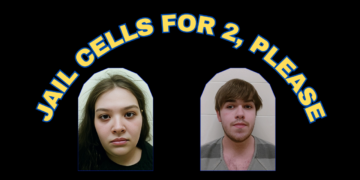Law enforcement alleges that what looked like trendy spa treatments were actually part of a black-market drug operation marketed as skincare and weight-loss injections. And now, new records obtained by SCDN reveal that Pure Bliss Aesthetics and MediSpa in Waverly, along with its owner, Haley Schackart (also known as Haley Borders), faced heavy penalties months before her September arrest.
A $90,000 Fine and License Revocation
According to the Ohio Board of Pharmacy, on May 22, 2025, Pure Bliss Aesthetics and MediSpa’s license was summarily suspended after investigators found the business had been administering tirzepatide—a powerful injectable drug later determined to be non-FDA-approved and purchased from unlicensed sources.
On August 6, 2025, the Board made the suspension permanent, revoking the spa’s terminal distributor license and imposing a $90,000 fine. The business also lost its license to operate as an aesthetic salon, though it still holds licenses for tanning and beauty salon services.
What Is Tirzepatide?
Tirzepatide is the generic name for the blockbuster drugs Mounjaro and Zepbound, which are FDA-approved for type 2 diabetes treatment and chronic weight management. It is administered as a once-weekly injection and works by mimicking two natural hormones, GIP and GLP-1, that help regulate blood sugar, appetite, and digestion. By activating these receptors, tirzepatide:
- Stimulates insulin release when blood sugar is high.
- Reduces sugar production in the liver.
- Slows digestion, keeping people fuller longer.
- Acts on the brain to reduce cravings and increase satiety.
While the legitimate versions are tightly regulated prescription medications, the spa was accused of injecting non-FDA-approved tirzepatide from unlicensed suppliers.
The Indictments
In addition to the Board’s action, a Pike County Grand Jury returned a multi-count indictment against Pure Bliss and Schackart in August. Charges include:
- Engaging in a Pattern of Corrupt Activity (F2)
- Tampering with Drugs (F3)
- Sale or Use of Drugs Not Approved by the FDA (F5)
- Deception to Obtain a Dangerous Drug (F5)
- Telecommunications Fraud (F5)
- Selling, Purchasing, Distributing, or Delivering Dangerous Drugs (M1)
Investigators say these charges stem from a long-term probe by the Ohio Board of Pharmacy. Despite earlier sanctions and fines, Schackart allegedly continued to sell and administer non-FDA-approved injections.
From Spa Menu to Court Docket
On Facebook, Pure Bliss promoted weight-loss treatments like Lipo-Mino, Tri Immune, and B12 injections, claiming they could “effortlessly burn fat” and “boost energy.” Schackart listed herself as an aesthetician, not a medical provider, raising further questions about the legality of offering such injections.
The FDA has repeatedly warned that no fat-dissolving or “fat burner” injections are approved for use in the U.S., citing risks such as cysts, skin deformities, painful knots, infections, and permanent scars.
Unequal Treatment? Comparing Borders to the Commissioners
The handling of Borders’ case has also sparked debate. When Haley Schackart Boders was arrested, the Scioto County Sheriff’s Office issued a press release and mugshot to local media, ensuring wide coverage of her case.
By contrast, Scioto County Commissioners Bryan Davis and Robert Horton, along with their wives, face nearly identical top charges of engaging in a pattern of corrupt activity in a separate corruption scandal. Yet they were quietly allowed to appear in court, agree to recognizance bonds, and visit the jail for fingerprinting without being booked, photographed in jail attire, or publicized in a press release.
Supporters argue Borders is being made an example of, while powerful public figures were shielded from public embarrassment. Law enforcement has not publicly addressed why the cases were handled so differently.
A Message to Other Spas?
With weight-loss drugs like Ozempic and Mounjaro surging in popularity, a shadow market of spas and wellness clinics is popping up across Ohio. Some believe Borders’ highly publicized arrest was intended as a warning shot to others offering non-FDA-approved injections without medical oversight.
But critics say if law enforcement wants to send a message, it should apply the same transparency and the same treatment—to all defendants, regardless of whether they run a spa or a county commissioner.




















































































